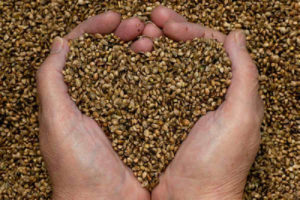In the Upper Room of Our Quarantine
My heart goes out to the people in that upper room in the first chapter of Acts. Once upon a time, they had been capable fishermen, efficient tax collectors, competent homemakers, and women of means. After meeting Jesus and being swept into his company, they’d had a crash course in discipleship, but they were still a ragtag bunch. There were the brothers who had quarreled over who was greater, the woman from whom seven demons had gone out, the gaggle who always needed the parables explained, and that blustery fellow who spent an awful lot of time with his sandal in his mouth. Then tragedy struck, followed by mystery. And now they were expected to be . . . what? His “witnesses to the ends of the earth?” What did that even mean?
Yet on Pentecost day, Scripture says, devout Jews from every nation under heaven heard them speaking in their own tongues of the mighty acts of God. The disciples had spent most of their lives knowing how to do one thing, and then they learned to do something else entirely, and then the Holy Spirit came upon them, and then they changed the world.
If their transformation seems dizzying, it might help to peek back into the upper room. Our mental image of that place may be DaVinci’s table-for-thirteen, but Luke tells us there were actually some one hundred and twenty persons gathered there. What did they do in those ten days between Ascension and Pentecost? Two things we know: they devoted themselves to prayer, and they discerned who had the right gifts for the work ahead, adding Matthias to the Eleven in place of Judas. Although they had no idea what would happen next, they stayed together, they prayed, and they did what they could until the Holy Spirit enabled them to do far more.
That’s a reasonable mandate for us during this Coronavirus crisis. Stay together (at least in mind and heart). Pray. Discern what you can do. Wait for the Holy Spirit.
 What has impressed me most about this time of shutdown is how people are learning to do things they never did before: pastors live-streaming Mass in near-empty churches; classroom teachers giving Zoom lessons from their kitchens; reporters broadcasting from their tidied-up dens. Much of this is made possible by technology, of course, enabling the self-quarantined to work from home, video chat with grandchildren, even play board games online with friends. A colleague of mine recently observed that, if this had happened just a decade ago, the entire school year would have been a wash. No graduations, no promotions to the next grade: just one giant do-over.
What has impressed me most about this time of shutdown is how people are learning to do things they never did before: pastors live-streaming Mass in near-empty churches; classroom teachers giving Zoom lessons from their kitchens; reporters broadcasting from their tidied-up dens. Much of this is made possible by technology, of course, enabling the self-quarantined to work from home, video chat with grandchildren, even play board games online with friends. A colleague of mine recently observed that, if this had happened just a decade ago, the entire school year would have been a wash. No graduations, no promotions to the next grade: just one giant do-over.
However, what is intriguing right now not just about the technology. I am so touched by the way people are rummaging around in their hearts and their skill sets, bringing forth whatever is useful for the need at hand. Makers of quilts are churning out masks. Performers are finding new ways of getting their art into the world. Distributors who used to move food from farms to fancy restaurants are packing boxes for hungry families instead. Of course, these pivots could be short-term strategies—designed to maintain an income stream or a sense of purpose—yet I believe that some of these new endeavors actually hold the seeds of future promise.
And it’s not just about what people are doing, of course; it’s also—and more importantly—about the transformation happening within. This season has been profoundly jarring, ripping away so much that we used to take for granted. Perhaps you are on the front lines of the crisis, sacrificing safety at work, peace at home, or financial security. Perhaps you are grieving the loss of someone dear. Or perhaps you are among the lucky ones: riding it out quietly, but still having to let go of plans, assumptions, and certainties. Here you are; here we all are, learning to abide in the unknown.
We are not unlike those early disciples: staying connected; praying in new ways; discerning next steps and waiting for the Holy Spirit to let us out of the room.
In his book The Holy Longing, Ronald Rolheiser describes the tasks required for each stage of the paschal cycle (not only in the Bible, but in the countless dyings and risings of our own lives). According to Rolheiser, the work from Ascension to Pentecost is this: let the past ascend and bless you; receive the spirit for the life you are already living.
We have begun to live into something new, here in the upper room of our quarantine. It is not clear how much the Coronavirus crisis will yet ask of us, but this has gone on far too long to be just a blip on the radar screen, a ridiculous inconvenience we’ll tell stories about someday. Now is the time to settle in, to pay attention, to notice the changes within and without.
How might the Holy Spirit be transforming you?
Questions for Reflection
- Read the first chapter of Acts. In prayerful imagination, place yourself in that packed upper room. Let yourself feel the anxiety and uncertainty of the first disciples. Wait with them at that still point between fear and promise. What do you notice within yourself? As they prepare for whatever is next, what resolutions arise within you?
- What have you begun doing during this crisis? Perhaps you have been learning a new skill, practicing a new attitude, or letting go of old assumptions. What seeds of transformation can you spot in these changes?

Christine Eberle is the author of Finding God in Ordinary Time, a book of daily meditations grounded in Ignatian spirituality that was used as an IVC common reading in 2019. A college campus minister for 26 years, Christine is now a freelance writer, public speaker, and retreat facilitator. You can follow her at www.christine-marie-eberle.com.
IVC By the Numbers
-
25 – Years of service to the poor and marginalized
-
$25.43 – Estimated national value of each service hour
-
$17,495.84 – Economic impact of one IVC service member’s time, talent, and expertise
